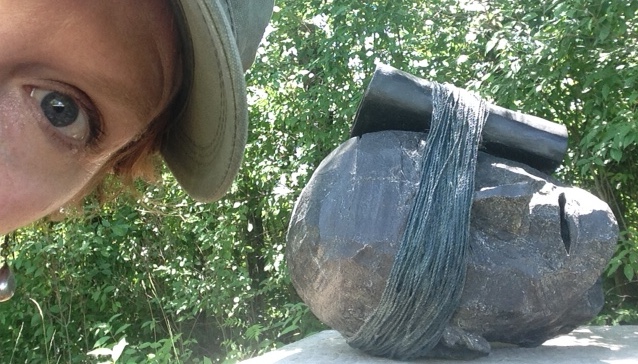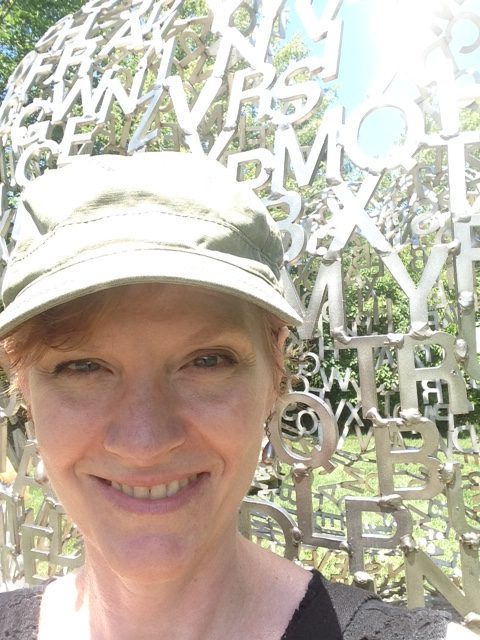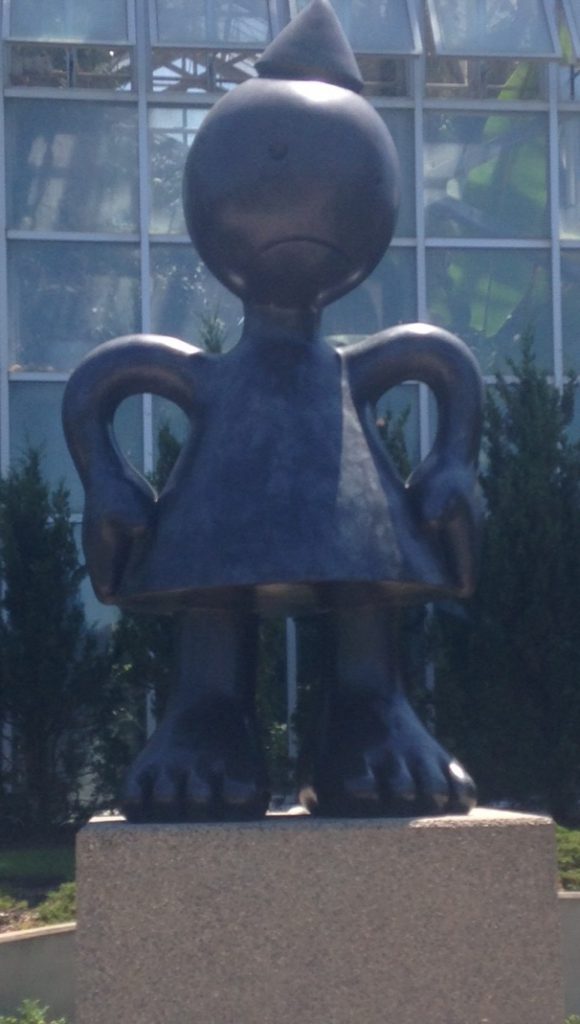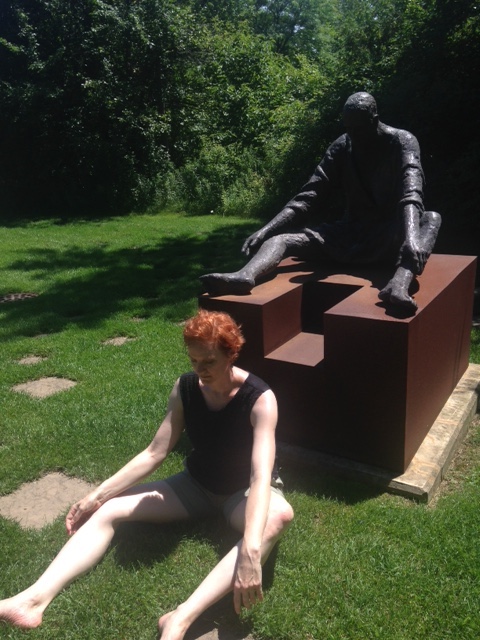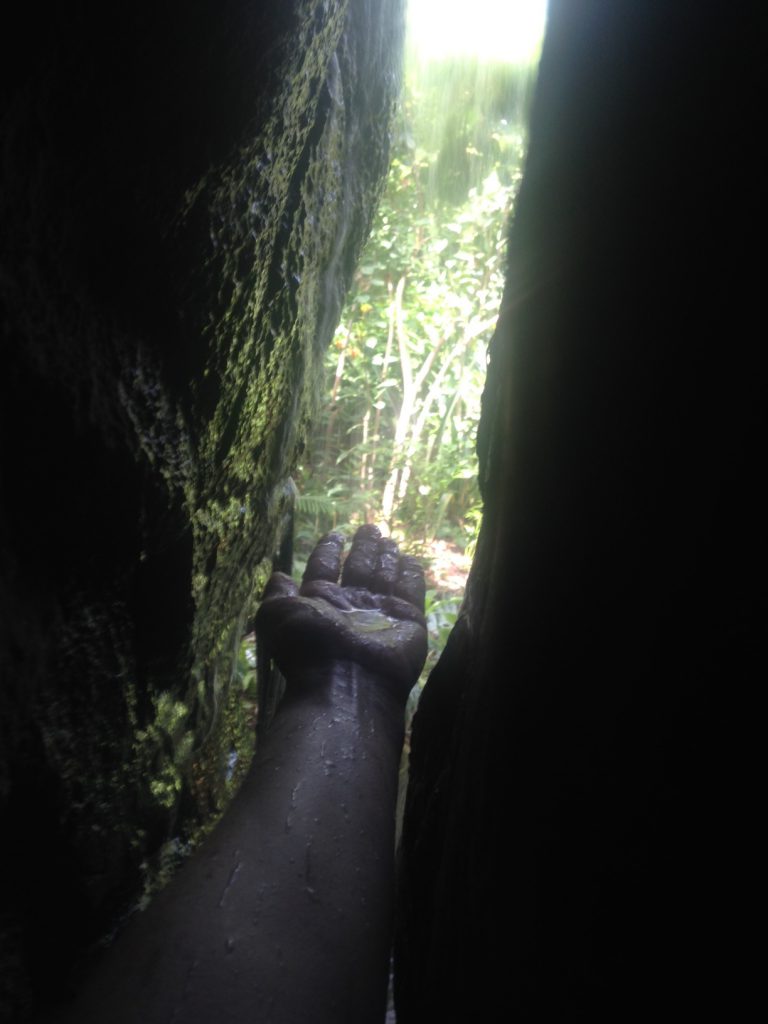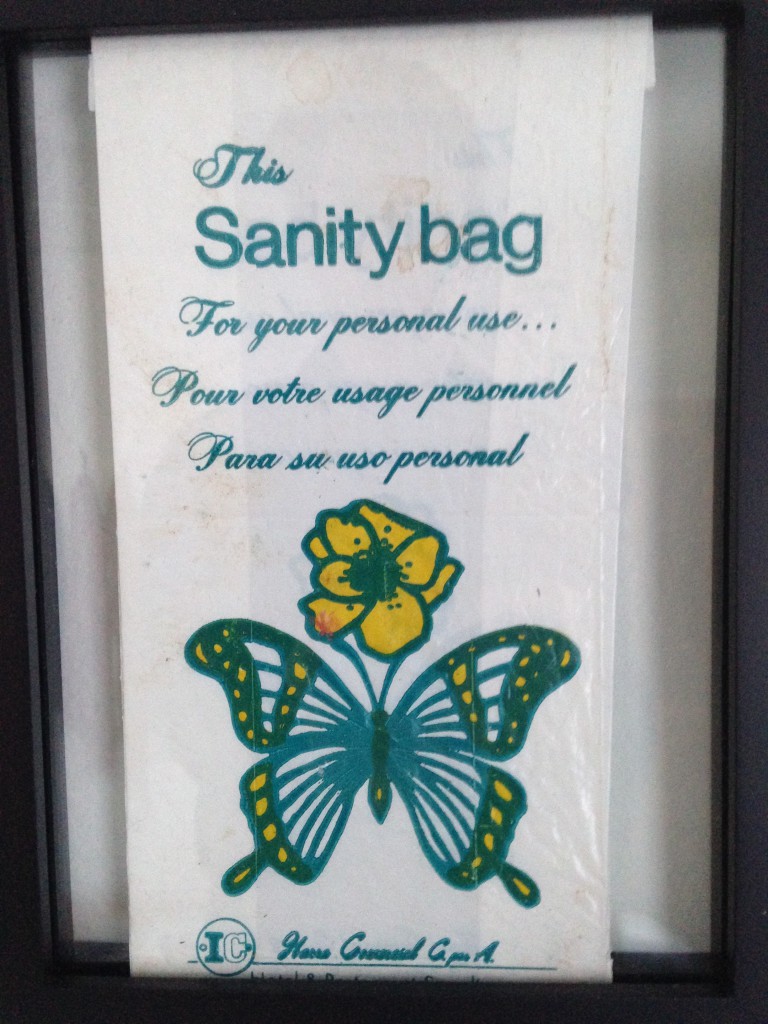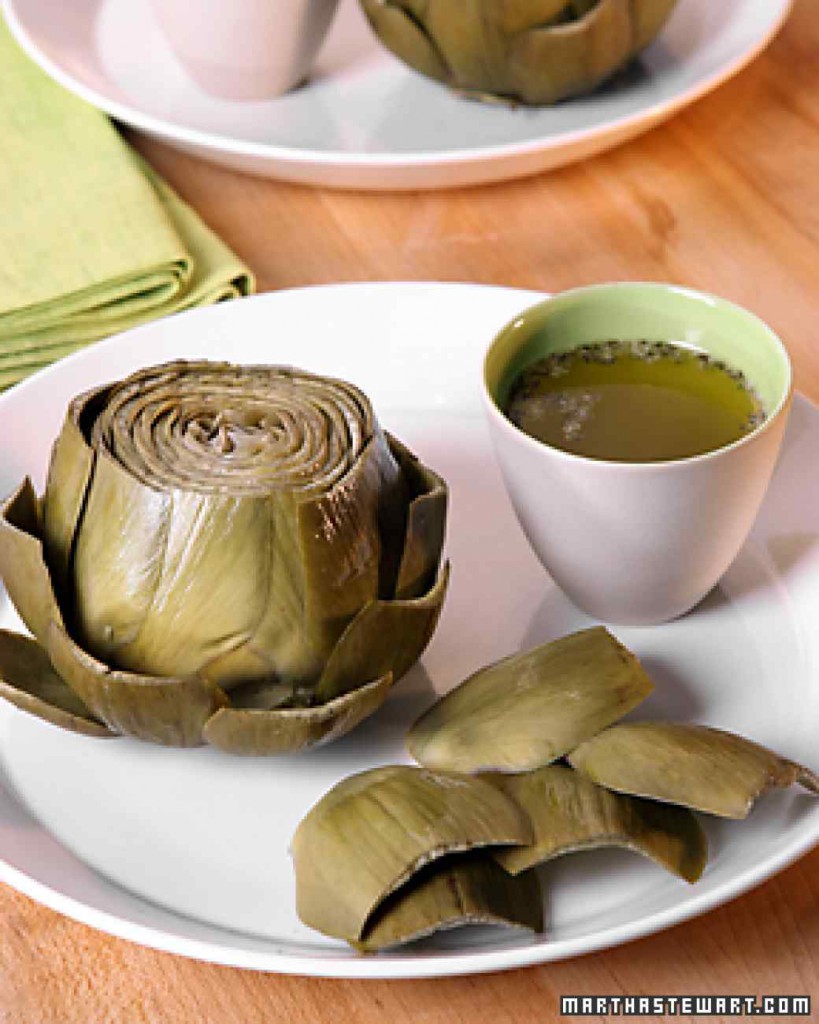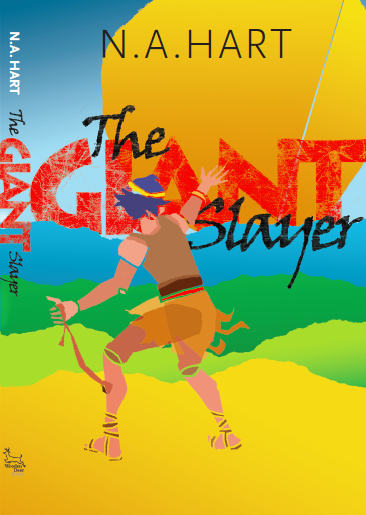[This is a 2500-word Fairy Tale about a psychic, involving a birthmark, that I wrote for the NYC Midnight Short Story Competition. Enjoy 🙂
ETA: I came in fifth in my heat, which qualified me through to the next round!]
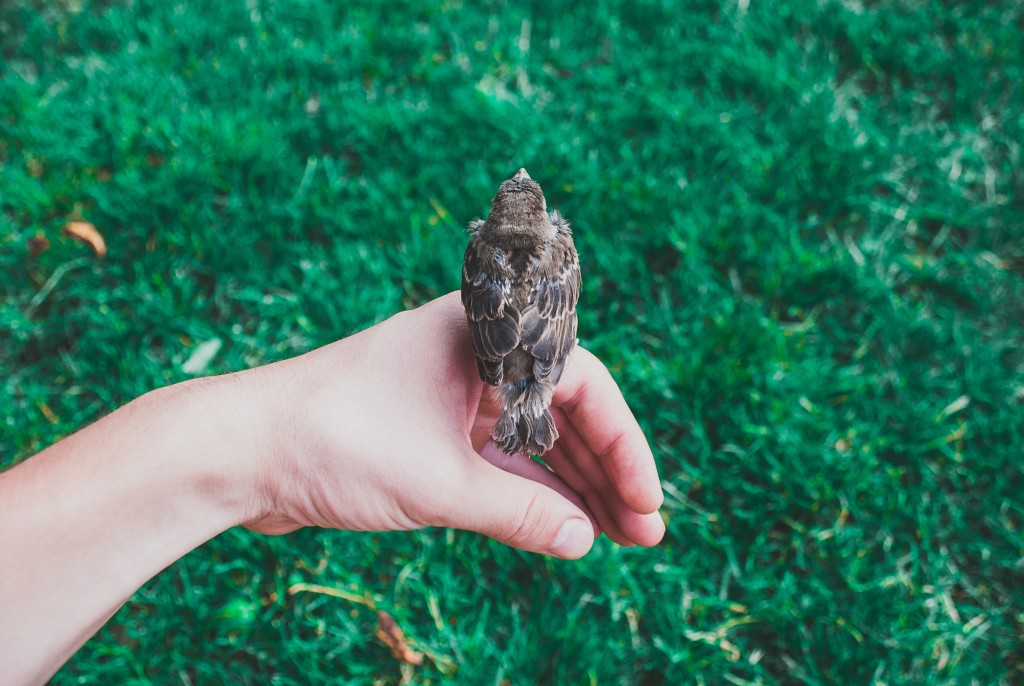
Once upon a time, a peasant couple was expecting their first child, and not a soul was happy for them. Cador was a weasel of a man, sharp-toothed and sneaky. People never saw a mark on his wife, but Tressa had as much substance as a shadow.
Her labor came on at the village well, so the women did their duty, even though they didn’t like her, and sent for the Sisters and bustled her home. When they got there, she pulled away and lowered herself onto a rough straw pallet on the far side of the hut, opposite the fire. They tried to make her some tea, at least, but they found neither wood in the fireplace, nor a tin of tea. Every counter was bare and every cupboard door was locked. No wonder the poor girl’s cheeks were still hollow.
As soon as the midwife, Brenna, arrived, the women fled.
Tressa didn’t let Brenna touch or examine her, but squatted on her pallet, her head bent, silently enduring the harrow of labor—until her husband’s boots scraped at the threshold, and she whimpered. Just once. The midwife almost missed it.
Brenna braced herself for an ugly scene, but he gave them a mere glance before unlocking the cabinets, making a fire, and cooking himself supper. When he was finished, he slopped cold water on the leavings and grunted to indicate it was for the women.
That a woman needed peace during this time was the only reason the midwife didn’t rail against Cador for eating like a king and giving his wife gruel while she went to the brink of death to birth his child.
When the time to push came, Tressa threw off her clothes as if they were keeping the baby in, revealing what she kept hidden.
Bruises. Burns. Some long healed. Some fresh.
The midwife’s spirit turned to flint that was just waiting to be struck so it could burst into flame, but that had to wait: the baby was crowning.
A daughter.
Why? Why would the Powers That Be put a girl in this family? Brenna tried to bury her rage and terror with after-birth work, but when she went to pick up the baby to clean her, Tressa’s trembling hands were in the way. The midwife looked into the new mother’s eyes and saw a forest fire’s worth of rage and terror, overwhelming her candle’s worth.
So when Brenna had the newborn in her lap, and she was wiping the white fuzz off the little face, she whispered ancient words and watched as a red stain bloomed wherever she moved the cloth: from the baby’s forehead, down her left temple, across half her cheek, and in a thin trail down the side of her throat, spreading again at the shoulder. She shook out the cloth, breaking the spell. “Don’t you want to see your little girl?”
Cador came from the warmth of the fire he’d been hogging, took one look at the ruined skin, and leaned over his wife. “You laid with the Devil, you little—”
“No.” Brenna drew herself up to her full height, challenging him to do the same. She smirked as she looked down on him. “The Devil doesn’t go for weak, downtrodden women like your wife, but this is his mark. He will keep an eye on this little one.”
“Macha.” It was barely a whisper, but it was clear: Tressa wanted her defenseless daughter named for a goddess of war.
“Yes, the Evil One will keep his eye on Macha.”
“How do you know him so well?” Cador’s tone was nasty.
“The Sisters make it their business to study evil,” Brenna fixed him with a pointed stare, “of all kinds.” She lifted the baby until it was level with his face. “This stain is a promise that if you lay even one finger on her, he will come for you and you will be his entertainment.”
If the midwife had known how literally he’d take that order, she might not have had the courage to stain Macha, because he took it farther than not hurting her: he didn’t touch her at all. Ever. And didn’t let her touch him. Out of fear of her husband, even Tressa stopped being tender with her as soon as she was weaned.
That’s how it goes with gifts: there is blessing; there is pain.
As soon as she could toddle, Macha escaped to the woods. At first it was big and scary, but the animals were curious and came closer and closer until the heartbroken girl could pet them. Soon enough, they snuggled against her while she napped on the moss. Her favorites were little birds called linnets. Like her, they were plain and unremarkable, except for the blush on their heads. After she found an injured male and nursed him back to health, he became her friend and often sat on her shoulder. When he mated, his children grew up trusting her. And his children’s children. Whenever she needed comfort, she called on her linnets, and they came.
By the time she was six, her father had declared that not only was she cursed, but everything she touched was cursed, so she wasn’t allowed to help her mother and learn the things good daughters did—not even fetching water. She blamed her stain for making her useless as well as unlovable.
Time did not improve her looks. Nobody could say, “She’d be so lovely if only…” No, she was plain. Her skin was walnut brown from all her time outdoors, which lessened the impact of the stain, but not much.
When she was thirteen, she fell so ill she couldn’t move from her pallet. After only two days, while Tressa was at the well, Cador wheeled the handcart into the hut and ordered Macha to get in. It reeked of dung, but she had no choice. Once outside, she whistled, and her linnets came. What a sight they were: the weasel-man pushing a cart with his daughter in it, both girl and cart covered in little brown and blush birds. He didn’t shoo them away out of fear that she’d turn them and their scores of blunt beaks on him. Poor girl, she didn’t even know she could’ve done it.
They trudged half the morning before he steered her up the walk of a manor house and banged on the front door. When one of the Sisters answered, he dumped Macha on the stoop. “You brought her into this world, now you can usher her out.”
It must’ve taken him the entire walk to come up with that poetry.
The Sisters nursed her back to health, not that it took much, just regular food, clean water, rest, a few herb tinctures, and time. None of which she would’ve gotten in the hut only a cruel person would call her home.
After she’d been there a month, and was well enough for daily walks, the Sister who’d brought her into the world joined her. “Do you know you could stay here?”
Macha’s steps faltered. “Stay here? To pay for you healing me?”
“No, no, child.” Brenna put her hands behind her back and stared straight ahead so as not to frighten Macha. “To learn and become one of us.”
“Nobody will want me to attend their birth. Not with this curse.”
It took all Brenna’s training not to shout and stamp her feet. “Your stain is not the result of a curse. You have been told lies and fed silly superstitions. Please tell me you didn’t believe them.”
Macha whistled and a linnet landed on her shoulder. “It’s all I know.”
“What about the testimony of the birds? And your other forest friends?”
“They’re just animals.”
“Wild animals. That don’t need you. But they love you.” Brenna whistled and a crow came and perched on her shoulder. “They do have excellent taste in people.”
That made Macha laugh. It was the first laughter they’d heard from her, and may have been the first time any human had heard joy from her lips.
After walking a while, Macha said, “Curse or not, people don’t want me near them. If I can’t midwife or go around to the villagers, what could I do?”
“You could assist the Sisters who mix our herbs by heading into the woods to collect the raw materials and learning how to mix them.”
Could Macha really tramp around outside as she loved to and be useful? “I already know a lot about plants in the woods.”
“Good. You could teach us some things, too.”
Macha tried to talk herself out of it, but every argument turned into a plus on the Sister’s side. All but one. “They say you’re witches.”
“They’d be right.” Brenna shrugged as if to say, “So?”
What could she say in the face of such bald acceptance? Macha decided to go back to her parents and return when she was ready.
She was ready as soon as she crossed the hut’s threshold and saw her father at the fire eating thick stew while her mother waited on her cold pallet for her thinned scraps. Macha’s conviction gave her the courage to feel.
Cador broke the silence. “You’re alive.”
“Sorry to disappoint you.”
Her parents stared as if she’d grown wings; she’d never talked back before. The experience was both exhilarating and terrifying. She strode over to Tressa, sat, and revealed the relative bounty of bread, cheese, and sausage from the Sisters. “Let’s have a decent meal for once.”
“Ungrateful turd,” Cador spat. “Who’s fed you all these years?”
Masha snorted. “Not you. You’ve begrudged me food. The woods have fed me.”
“If you think you can talk to me that way…”
She tuned out his rant while she ate and waited for him to finish. “Don’t worry. I’m leaving. The Sisters are going to teach me herbs and healing.”
“Thank the Powers,” her mother said. “If you stay, he’ll sell you into a marriage like this.”
“That’s not going to happen,” Macha said.
“Leave now.” Tressa’s voice was urgent. “Don’t even wait until you’ve eaten.”
“But you need to eat for once.”
Cador’s voice was low and dangerous. “What kind of witchcraft is this?”
He came closer; her mother put her hand over her daughter’s and Macha was assaulted by three distinct images of her mother smothering the babies who would have been her siblings.
Macha whispered, “You killed them all?”
“I saved them all.” Tressa’s eyes contained pride—no guilt, no remorse. “I would’ve saved you, too, if the midwife hadn’t been there until he showed up.”
Finally, Macha realized that although she’d heard her mother’s voice, Tressa’s lips had not moved this whole time. Heat rose in prickles from her chest, up her neck, to her face, deepening the color of her stain. She stood and rounded on her father. “You! You did this to her.”
“Careful what you say, girl.”
“No! I will not be careful!” Macha was hit with another vision, this time of her father loading her mother’s dead body onto the handcart. “You’ll get your way soon enough. You will kill her and bury her in the woods, and they will run you out of the village and you will die a filthy beggar.” She was panting and sweating and in danger of losing the little bit of food she’d eaten. Where were these visions coming from? How did she know they were true?
While her parents were frozen from shock, Macha snatched the food and her cloak and bolted out of the hut, pausing only briefly in the woods to gather her treasures. She called her linnets to her while she hiked back to the manor house.
Brenna heard the commotion of Macha and the birds long before they would’ve come into view, so she went out to meet them.
“I can see things.” Macha’s words came out in a rush. “Horrible visions of the past and the future. I can hear my mother when she doesn’t speak. What is happening to me?”
“What was different about seeing your parents this time?”
“I let myself get angry. Before I always tried to feel nothing.”
“Your strong emotions have a revealed a gift we didn’t know about.”
“Gift!” Macha shrieked and the linnets joined her. “Did you give it to me?”
Brenna calmly held Macha’s wild gaze. “I didn’t give you this gift. Can you look into me?”
Macha saw her perfect infant skin marred as Brenna moved her cloth over it. She sank to her knees and touched the left side of her face. “How could you?”
“To protect you from your father.”
“That’s why my mother killed my siblings. How is what you did different from that?”
Brenna sat next to her in the dirt. “Only by degree. It’s a hard call. As we learn to use our gifts, we have to learn our values at the same time. What will we use it for? What will we not use it for?”
The Sisters taught Macha to use her gift of sight so she didn’t need to be in a high emotional state to let the visions come. She learned to recognize the wisdom nature had been teaching her all along. At first, she worked with the herbs, but in time, as her spirit healed and she grew accustomed to the company of the Sisters, she realized it was time to stop hiding. Her work at the manor house was done, and she became a fortuneteller in a traveling circus, where she learned to read human society as she’d learned to read animal society.
She was still no beauty, but with proper feeding, she did develop a magnificent bosom, which she enjoyed displaying to great advantage in her circus costume.
When she was twenty, her fame had grown such that a Prince followed the circus with all his retainers, just to have access to her, because everything she told him was true, and nobody told princes the truth. At first, he offered her marriage, in the hopes a wedding would bring peace to his palace. She laughed, because she couldn’t reconcile the word “peace” with the word “marriage.” But she agreed to be his advisor, so he installed her into her own suite of apartments at his castle. Due to her wise counsel and her ability to tell who was lying and why, and see what they were desperately hiding, the Prince became King, and peace did reign in his land.
Some people hearing this tale might wish that the part with the Prince had been the main story, but that was not the part Macha liked to tell. She was proud that she’d survived her childhood. Proud that she’d learned to manage both the blessings and the pain of her gifts. Proud of facing the world unashamed. That a Prince noticed was rather beside the point.

